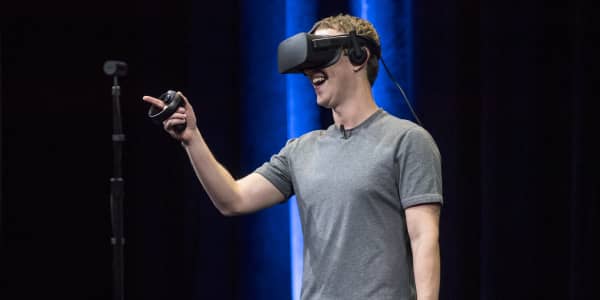Baidu — China's biggest search engine — introduced an artificial intelligence-powered chatbot on Tuesday to connect with patients, field medical questions and suggest diagnoses to doctors.
The company is calling the bot — a new feature of the Baidu Doctor app it launched last year — Melody the medical assistant. Baidu has developed advanced deep learning and natural language processing technologies to power Melody's artificially intelligent "brain."
The bot is designed to be the first port of call for a person feeling sick at home. A patient poses a health query to Melody, which responds in real time with further questions, and compares responses with Baidu's database of medical information. All that data gets crunched, and Melody then poses a possible diagnosis to a doctor who can then recommend next steps.
Artificial intelligence is seen as one way to help compensate for the global dearth of qualified medical professionals, a problem experts predict will only get worse. There will be a global shortfall of almost 13 million health-care professionals within two decades, according to the World Health Organization.
"I don't know how else to solve this problem other than to use AI," said Andrew Ng, chief scientist at Baidu Research. "I'm seeing just the beginnings of what will be a major trend of AI systems in health care."
Baidu has built a 1,000-person team to work on AI, which Ng said is one of the company's top priorities. The app will launch in China — the world's biggest smartphone market — along with doctor and health-care organization partners. The company is in talks with health-care organizations in the U.S. and Europe, said Ng.
"This is resonating well with physicians around the world," he said.
AI is shaping up to be one of 2016's hottest areas of innovation. Amazon, Apple, Google, Facebook and Samsung are all investing heavily in this area — building giant teams of data scientists internally and through acquisitions. Since AI's success hinges on access data, it is these giant tech platforms that will ultimately control the market.
For Melody's artificial intelligence, Baidu drew on data from a number of public and private sources, including medical textbooks, medical websites — which have gathered a vast array of back and forth conversations between doctors and patients and search queries — as well as search queries and information supplied by doctors. It then applied deep learning to all that health data in order to make sense of it.
"That's at the heart of Melody," said Ng.
For example, a person may say something like "my son is feeling under the weather" instead of "my son has the flu." Melody would know to ask follow up questions about symptoms to figure out what type of illness the patient may be suffering. To decipher the complexities of natural language, Baidu's computers have consumed huge volumes of text and applied artificial intelligence.
Over time — as Melody has more conversations with patients and doctors and gathers with more data — it will get better at knowing the right questions to ask patients and suggesting possible diagnoses, said Ng.
Melody is not ready to make diagnoses directly to patients, said Ng. In fact, this type of technology is a long way from replacing human physicians with robo-doctors, he said.
"Right now, given the global shortage of health-care workers, in this next period of time the focus should be on helping," he said.
The widespread availability of powerful computers and increasingly large volume of digital health-care data mean now is the time for AI to disrupt the industry, said Ng.
China has been way ahead in terms of delivering goods and services via apps and employing chatbots in an array of roles, so Chinese consumers are already quite comfortable with chatting with AI powered bots. Still, in light of high profile health-care data breaches, some consumers are likely to be wary of sharing too much health information with Melody and Baidu, and open up their records to potential bad actors.





